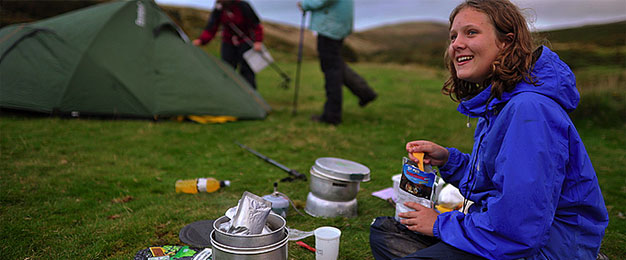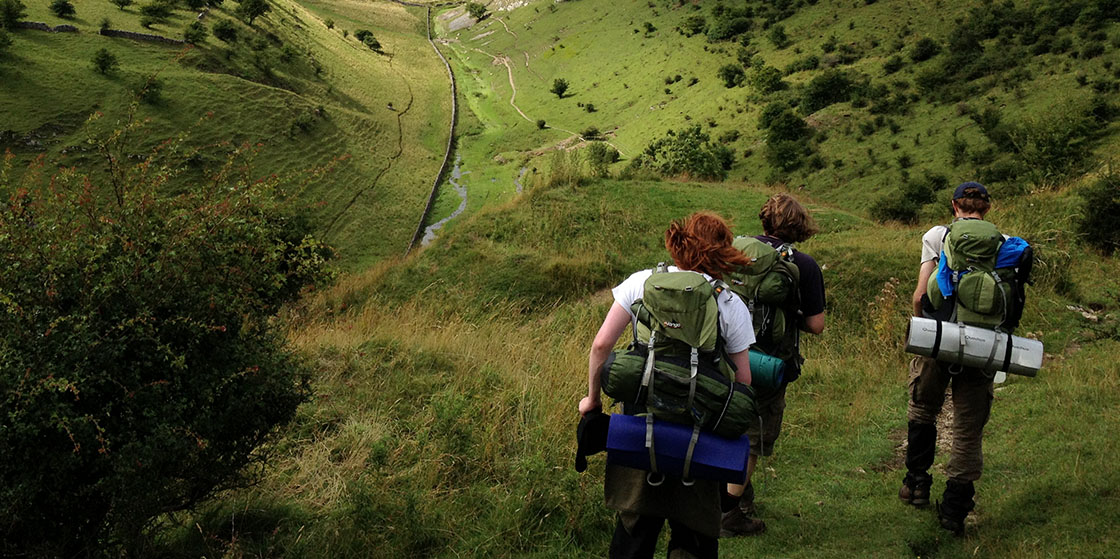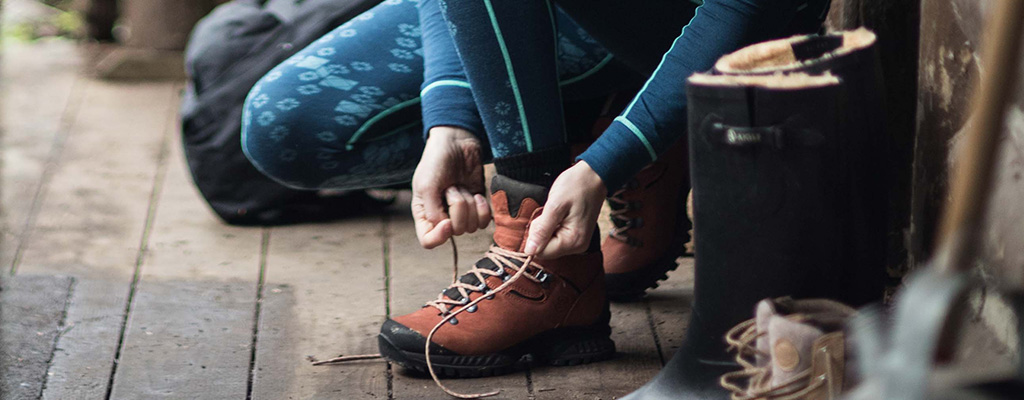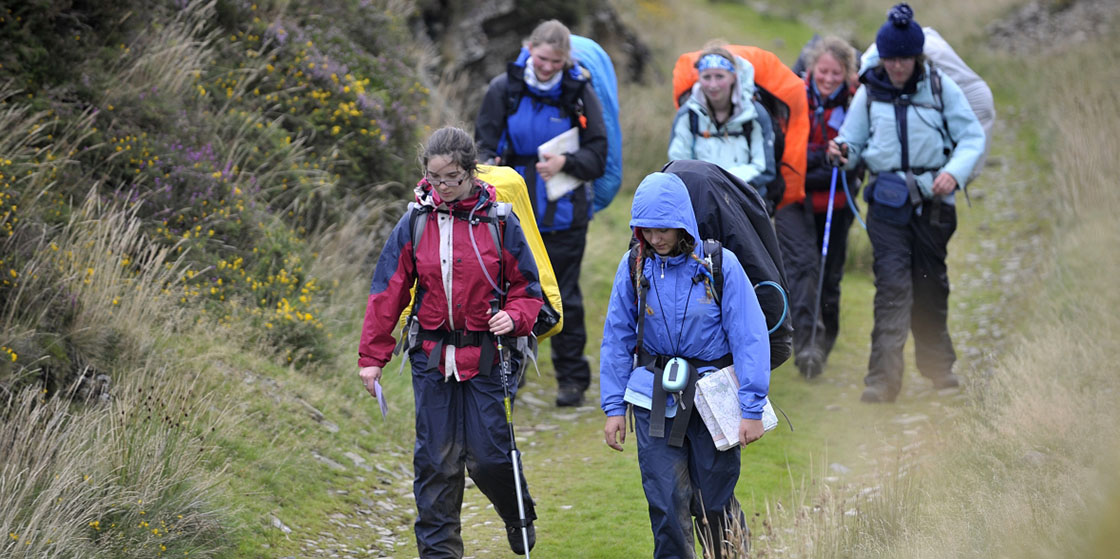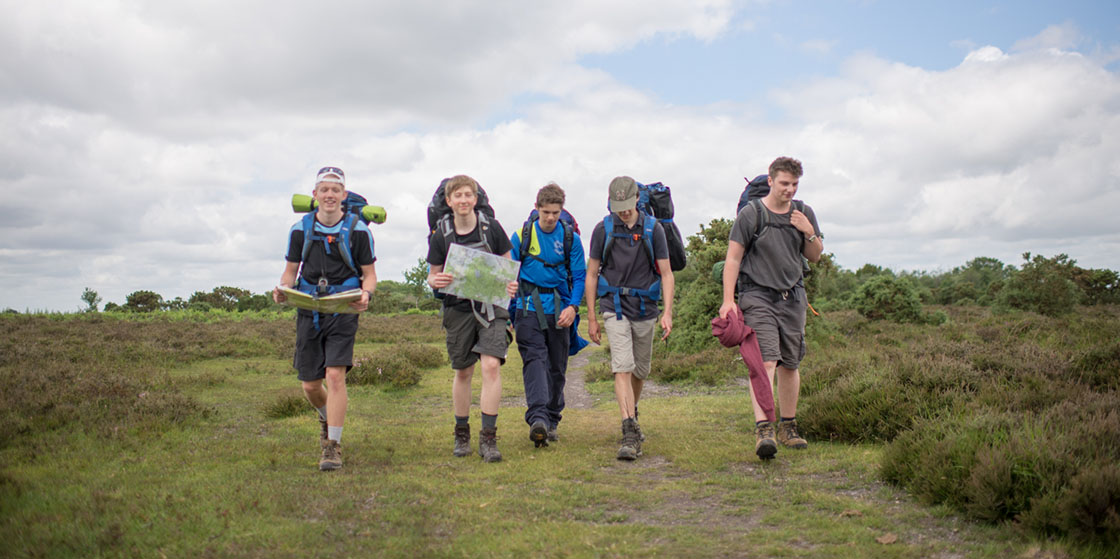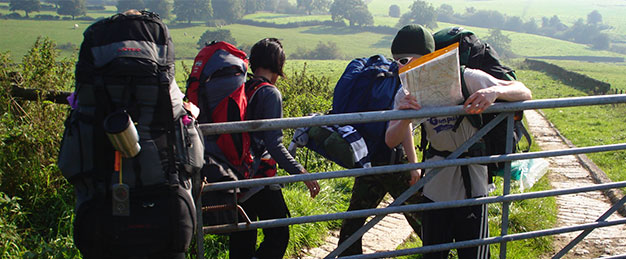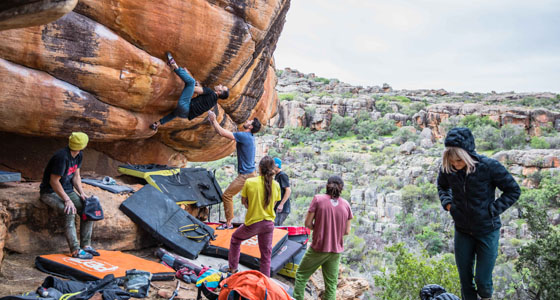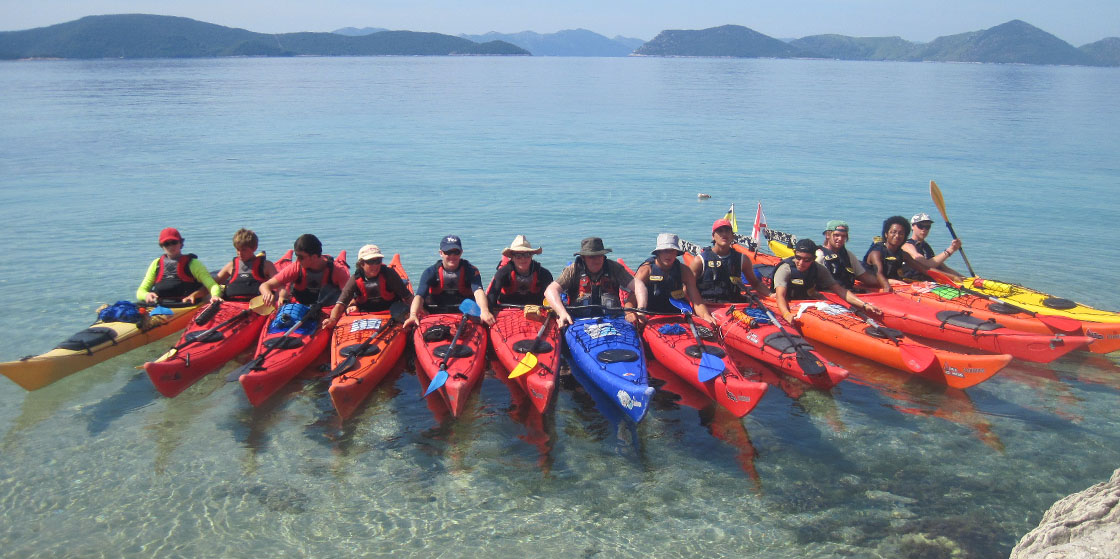Introduction to the DofE Programme
The Duke of Edinburgh's Award, also known as the DofE, is a youth achievement award that promotes personal development through participation in volunteering, physical activities, skills development, and adventurous journeying. Since its launch in 1956, millions of young people globally have taken part, gaining valuable experiences that equip them with skills and confidence for life. The DofE is open to all young people aged 14-24, regardless of background or ability. There are three progressive levels - Bronze, Silver and Gold - which when completed, lead to a Bronze, Silver or Gold Duke of Edinburgh’s Award. Participants set their activities and goals for each section, which their DofE Leader approves.
The DofE is comprised of four sections: Volunteering, Physical, Skills and Expedition. Participants must complete a minimum period for each level, throughout which they will set goals, regularly participate in their chosen activities and provide evidence of their progress. An adventurous team expedition is also required at each level. The award programme is flexible and designed to work around schedules, with most activities taking place in participants' free time. Completing their DofE gives young people recognised credentials to include on university applications and CVs. Participation demonstrates a commitment to self-improvement and developing skills sought after by employers. Around 300 universities and colleges in the UK recognise the Gold DofE as part of their UCAS tariff. Overall, the award provides an invaluable opportunity for young people to build confidence, resilience, skills for work and friendships.
The DofE Sections Explained
As previously outlined, the award is comprised of four sections - Volunteering, Physical, Skills and Expedition. Here is a more detailed look at each area:
- Expedition Section → The adventurous Expedition section involves planning, training for and completion of a journey with an agreed purpose. Teamwork, use of maps and navigation skills are developed through the experience. Expeditions can be done by foot, cycle, horseback, or boat - as long as the purpose involves journeying in the outdoors.
- Volunteering Section → For the Volunteering section, participants commit to a length of time helping people or the environment through voluntary service. This enables participants to see themselves as active citizens and agents for social good. It also develops empathy, communication skills and an understanding of social issues impacting communitie.
- Physical Section → The Physical section encourages participants to improve their fitness and well-being. By committing to regular exercise sessions over a sustained period, participants also develop perseverance. As with the other sections, participants can pursue existing interests like team sports or try something completely new.
- Skills Section → The Skills section aims to help participants develop practical and social skills as well as nurture personal interests and talents. Almost any skill, creative, performance or home activity can be used for this section.
DofE Expedition Section
The adventurous Expedition section involves planning, training for and completing a journey with an agreed purpose. Teamwork, use of maps and navigation skills are developed through the experience. Expeditions can be done by foot, cycle, horseback, or boat - as long as the purpose involves journeying in the outdoors. Participants first complete practice journeys to build skills and fitness. These help prepare for the final assessed expedition which must be accomplished without direct adult supervision. Expeditions can take place in the UK or abroad. The team size is between 4 to 7 participants. Training and planning take place over months before final expeditions. This develops teamwork as participants need to cooperate on the route, kit and camp arrangements.
All expeditions include:
- A clearly defined aim/purpose
- A planned route of travel with overnight camp
- Adherence to the 20 conditions (expedition requirements)
- Assessed by an approved DofE assessor
For each level, participants must complete:
Bronze: 2 days + 1 night expedition
Silver: 3 days + 2 nights expedition
Gold: 4 days + 3 nights expedition
Choosing DofE Expedition Locations and Routes
Bronze Level
As this is the introductory level, expeditions should be accessible and relatively straightforward for participants undergoing training. Recommended expedition locations for Bronze DofE include:
- Established Long Distance Paths → Using existing National Trails and well-walked routes can give beginner expedition teams confidence while still providing challenge and interest. Look at sections of The Ridgeway, the South Downs Way or Offa's Dyke Path.
- Forested Areas and Skirt Upland Regions → For expedition teams newer to navigating steep ascents, forested regions with gentler gradients can be a good option. The New Forest or The Forest of Dean offers this while still providing enriching woodland-themed journeys. Skirting the edges of higher upland areas is also recommended.
- Coastal Routes → Expeditions along dramatic UK coastlines allow teams to journey point-to-point while rarely being too remote. Sections of the South West Coast Path or Pembrokeshire Coast Path provide adventure while never being too far from civilisation.
- Farmland, Canal and River Routes → Lower-level expeditions can effectively follow routes across farmland, along canal towpaths or adjacent to rivers. As well as the ease of navigation, this offers insight into Britain's agricultural landscapes and industrial heritage.
- UK National Parks → The UK's 15 National Parks offer excellent opportunities for beginner expeditions. They contain rugged uplands and valleys without extremes of remoteness. They also have well-established, waymarked trails and access to resources. Consider Snowdonia, the Peak District, the Lake District, the Yorkshire Dales or the Brecon Beacons for UK-based Bronze expeditions.
Silver Level
With their expedition skills improved from completing their Bronze journey, teams can take on more challenging routes and terrains for their Silver DofE. Recommended destinations include:
- Higher UK National Parks → Building on Bronze journeys, the more rugged areas of National Parks like the Lake District provide steeper ascents and longer routes for Silver teams. Consider the valleys around Keswick or treks over higher points like Helvellyn.
- Upland Ridges → Ridge routes allow teams to access higher ground and experience broader vistas while following a navigable terrain feature. Try sections of the North Downs Ridge trail or Black Mountains Ridge in South Wales.
- UK Long Distance Trails → Trails including the West Highland Way, the Great Glen Way or the Cleveland Way provide long-distance point-to-point routes through more remote landscapes for Silver level.
- Dartmoor → Dartmoor’s exposed high moorland and tors provide a significant yet achievable wilderness expedition for teams who have completed their Bronze. Consider routes across areas like the Okehampton Range.
- The Scottish Highlands → The wide open spaces of the Scottish Highlands suit Silver expedition teams looking for higher difficulty while still in the UK. Routes here might take on mountains like Ben Nevis or sections of the West Highland Way.
- Coast to Coast → For an expedition with a difference, teams could consider planning a coast-to-coast route taking them from an easterly UK coast to a westerly one. Allowing time to plan suitable pacing and resupply points is essential here.
Gold Level
At the Gold level, overseas expeditions are encouraged to provide even greater challenges. But for UK-based expeditions, here are some of the most challenging yet incredible locations to consider:
- The Scottish Highlands and Islands → The Scottish Highlands, including areas like Torridon, provide wild and remote terrain perfect for Gold DofE teams. Route options can include ascending iconic Munros. Visiting the Hebrides islands is another option.
- National Three Peaks Challenge → A unique but demanding challenge is for teams to plan routes taking in the three highest peaks in Scotland, England and Wales within 48 hours. Ben Nevis, Scafell Pike and Snowdon make up the Three Peaks.
- Full UK Long-Distance Trails → Trails like the South West Coast Path or the Pennine Way enable experiences across the full length of Britain's most iconic routes. Only the most prepared teams should take on the full trails within the Gold time frame.
- Dartmoor Letterboxing → This expedition with a difference involves seeking out geographically remote letterboxes across Dartmoor, requiring accurate bearings over pathless boggy ground. Not for the faint-hearted.
- Mountain Marathon Events → Testing their navigational skills to the limits, teams could enter an organised mountain marathon event like the Original Mountain Marathon or Highlander Mountain Marathon. These involve overnight self-sufficient racing over tough mountainous routes.
- The Lake District → The Lake District offers the most challenging mountainous terrain in England. Gold DofE expeditions here could take on climbing routes up England's highest peak, Scafell Pike, or visiting outlying fells.
DofE Volunteering Section
Choosing a Volunteering Activity
There are many ways DofE participants can volunteer locally:
- Youth Work → Volunteering with youth organisations like the Scouts allows participants to support the development of younger members. They assist by delivering activities, accompanying camping trips and advising on badges and challenges. Mentoring younger children builds valuable leadership, coaching and communication abilities.Youth volunteering develops lasting bonds through collaborating towards badges and goals. Participants gain a lasting sense of fulfilment from guiding others' self-improvement.
- Conservation Work → Conservation volunteering enables participants to actively improve their local environmental quality and sustainability. Activities like litter picking, tree planting, and maintaining nature reserves provide opportunities to care for the neighbourhood's ecology. Participants gain tangible experience of conservation in action while fostering environmental awareness and stewardship. Measurable improvements are made through conservation work like habitat restoration and biodiversity enhancement.
- Charity Shops → Volunteering at charity shops allows participants to gain valuable retail and customer service skills. They assist with sorting donations, creating attractive merchandising displays and serving customers. Earning money for worthwhile causes makes the time invested highly fulfilling. Participants learn skills like stock rotation, visual merchandising, handling payments and providing excellent customer service. Volunteering develops practical capabilities while benefiting the income of charities and causes participants to care about.
- Animal Welfare → Volunteering at animal shelters allows participants to directly improve the welfare of rescue pets in need. Activities like walking, feeding, grooming and cleaning the animals enable participants to make a tangible difference. Dogs lacking socialisation and exercise are taken on enriching walks.Shelter volunteering fosters a sense of purpose in measurably improving vulnerable creatures' well-being.
- Care Homes → Volunteering in care homes provides participants with opportunities to invest time chatting, reading and playing games with elderly residents. Those living in care often have limited family support and appreciate the companionship. Participants can gain insights into the needs and experiences of the elderly, nurturing empathy and patience. Those living in care homes appreciate volunteers spending time chatting, reading, playing games and assisting with activities. It provides stimulation and companionship.
- Fundraising → Fundraising enables participants to significantly boost chosen charities through awareness campaigns and sponsored events. Participants develop project management skills by coordinating logistics like venues, promotions and sales. Creative skills shine through producing posters, social media content and displays. Events could include fun runs, auctions, bake sales or car washes. Door-to-door and street collections also raise vital funds.
Volunteering Hours
To complete the Volunteering section, participants must dedicate a set number of hours depending on their DofE level. Participants should aim to volunteer an average of 1 hour per week over the period, though hours can be arranged flexibly to fit around other commitments. Keeping an accurate log of hours and gaining supervisor sign-off is important. In total, consistency and making a regular contribution is emphasised over the duration. The minimum time for each level are:
- Bronze: 6 months
- Silver: 6 months
- Gold: 12 months
How To Complete The Volunteering Stage
Research local causes and opportunities that interest you and fit your schedule.
Contact the organisation and go through their application process.
Arrange your schedule of sessions across the period for your DofE level.
Use any training provided to maximise the impact you have through volunteering.
Log your hours and get supervisor approval.
Complete a reflective report on your experiences and achievements.
DofE Physical Section
Choosing a Physical Activity
There are numerous exciting physical activities to choose from for the DofE Physical section:
- Team Sports → Many participants choose team sports like football, netball, hockey, cricket and rugby that they already play competitively or socially. Team sports enable participants to maintain and build fitness alongside teammates. As well as matches, training sessions and drills count towards DofE time requirements. Team sports foster camaraderie, communication skills and sportsmanship. The shared commitment to training and competing builds lasting bonds. Achieving collective goals as a team is rewarding.
- Individual Sports → Individual sports like running, cycling, swimming and horse riding allow participants to focus on self-improvement without reliance on others. Setting personal goals for improving speed, endurance or technique provides motivation. Tracking individual progress yields clarity on fitness gains. Pushing yourself and seeing your visible improvements over time builds confidence and pride. Individual sports instil discipline to maintain consistency without external pressures.
- Water Sports → Water sports such as sailing, windsurfing, kayaking, surfing and paddleboarding appeal to those drawn to aquatic adventures and the sea. Most require instruction to learn techniques and safety, providing enriching opportunities to develop new skills. The sports challenge agility, balance and cardiovascular fitness. Being active in the invigorating open water builds courage and resilience. The social element creates bonds with fellow water sports enthusiasts.
- Dance → Dance styles like ballet, contemporary, hip hop and ballroom enable creative expression through movement to music. As well as improving fitness and flexibility, dancing builds rhythm, body awareness and musicality. Learning choreographed routines fosters teamwork and friendships with dance classmates. Performing pieces together creates a sense of collective accomplishment.
- Gym & Fitness → Gym sessions and fitness classes allow measurable improvements in strength, endurance and aerobic fitness. Gymgoers can tailor programmes using cardio machines, weights and resistance training. Motivating group classes provide structure, from high-intensity intervals to lower-impact yoga and Pilates. Seeing fitness visibly increase with gym participation provides a sense of achievement.
- Combat Sports → Combat sports like boxing, martial arts, fencing and archery hone agility, discipline and mental focus alongside physical fitness. Receiving technical instruction expands capabilities. Progressing through graded skills tests provides mini goals to motivate consistent training between assessments.
- Outdoor & Adventurous → Outdoor activities like hiking, rock climbing and parkour challenge participants physically while expanding capabilities. Staying active in natural settings provides enjoyment and escape from the everyday. Pushing personal boundaries builds resilience.
DofE Physical Section Requirements
Dedication and persistence over sustained timespans are central to the Physical section. Participants should aim to average at least 1 hour per week across the period. This can be split into shorter sessions of a minimum of 30 minutes to fit around other commitments if needed. The key is consistency of effort over the full duration. For instructor-led activities like team practices, dance classes and gym sessions, the time involved counts automatically. For independent sports and exercise, participants must personally track and log each session. Completing the entire timeframe at each level demonstrates admirable commitment as motivation naturally fluctuates. Participants prove they can push through when progress stalls. Their fitness, skills and self-discipline grow measurably over the months. The duration requirements ensure persistent effort leads to genuine development. The minimum durations for the Physical Section at each level are:
Bronze: 3 months
Silver: 6 months
Gold: 12 months
How to Complete The Physical Stage
To complete the Physical section, participants should begin by selecting activities they will enjoy and that fit their abilities. Joining local sports teams, classes and groups provides structured opportunities. Make a schedule for the full duration required at your DofE level, booking specific sessions. Set fitness and skill development goals to provide direction - these could relate to speed, strength, technique or challenge events. Maintain motivation by tracking progress in a training log or app and reviewing achievements. Adapt your plan when needed, focusing on overall consistency across the timeframe. Participate safely with warm-ups, correct gear and gradual building of intensity. The supervised nature of many activities provides support. Stay disciplined through self-directed sessions to log the hours required. Allow time for rest and recovery to prevent burnout. Finally, reflect on the physical and mental gains made through your dedicated participation over the months. Completing the physical section develops health and self-belief.
DofE Skills Section
Learning Options
The Skills section enables participants to expand their capabilities and knowledge through committing to regular practice and development of a chosen skill over an extended period of time. Almost any skill can be selected, providing it offers a new learning experience for participants. From creative pursuits like music and arts to performance skills and digital abilities, tangibly improving and demonstrating progress is central to meeting this section’s requirements. Self directed learning of skills with online courses, books and video tutorials can also work well. Blending some group participation for feedback with personal practice ensures coverage of the hours required. Many skills can be developed through joining local groups and classes including:
Performing arts - music lessons, dance classes, drama circles
Arts, crafts and creative hobbies - textiles, pottery, creative writing
Life skills - cooking, vehicle maintenance, DIY
Digital skills - coding, animation, website development
DofE Skills Section Requirements
The minimum time requirements for the Skills Section are:
Bronze: 3 months
Silver: 6 months
Gold: 12 months
Completing Your Skills Section
- Set specific goals at the outset e.g. to learn a musical instrument well enough to play a song
- Make an effective practice schedule and stick to it
- Record your progress e.g. videos showing development
- Gain feedback from instructors to keep improving
- Adapt your approach to overcome plateaus
- Finally, demonstrate your new talents through a performance or showcase
Related articles

Let us know you agree to cookies
We use marketing, analytical and functional cookies as well as similar technologies to give you the best experience. Third parties, including social media platforms, often place tracking cookies on our site to show you personalised adverts outside of our website.
We store your cookie preferences for two years and you can edit your preferences via ‘manage cookies’ or through the cookie policy at the bottom of every page. For more information, please see our cookie policy.

